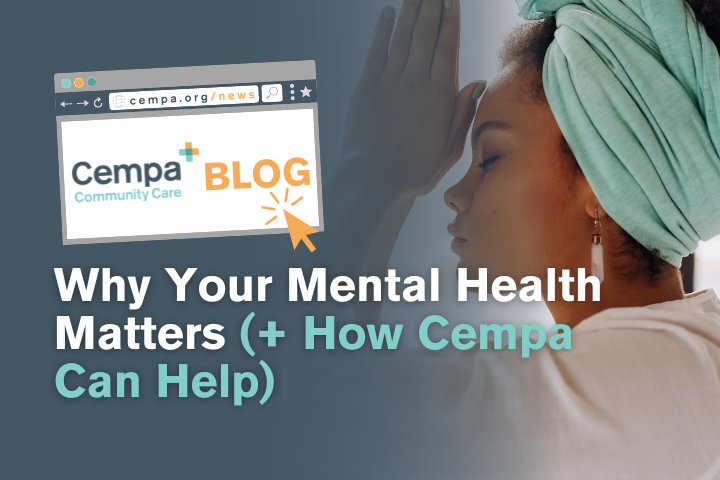All too often when we think about our health, only the physical side of health comes to mind. But the reality is very different: Your mental health is every bit as important as your physical health.
In fact, mental and physical health work collaboratively to ensure you’re at your best. When you struggle with a mental health issue, even something as simple as stress, your physical health will suffer. The reverse is true, too — when you have an illness or an injury, your mental health can also be impacted.
We all know it’s important to take good care of ourselves. That should include your mental health!
Mental Health & Americans Today
The National Institute of Mental Health defines mental health as “emotional, psychological, and social well-being [that] affects how we think, feel, act, make choices, and relate to others.”
Mental health touches so many aspects of daily life. And for Americans and others across the world in recent years, our mental health has been struggling.
Worldwide, there was a 25% increase in the prevalence of anxiety and depression in the first year of the COVID-19 pandemic. That trend continued throughout the pandemic, leaving us more stressed and anxious than ever before.
Mental health issues are common, affecting one in five Americans. They’re even more common among those who are facing physical health issues, including those who have HIV. Those who have HIV are at a higher risk of developing certain mental health conditions, including depression.
Taking Care of Your Mental Health
How can you stay mentally healthy? Some of the basic lifestyle habits that keep you physically healthy are good for your mental health, too.
Move your body often, aiming for about 20 minutes of physical activity each day. Drink plenty of water, and aim to fill your plate at meals with plenty of fruits and veggies, lean proteins like chicken or fish, and whole grains. Prioritize getting between seven and nine hours of sleep each night.
You can also boost your mental health with these steps:
Find healthy ways to manage stress. Stress is a reality of life. A small amount of stress is quite normal and can actually even be helpful in motivating us to accomplish tasks or reach goals. But a large amount of stress can be harmful for your physical and mental health. If you often turn to unhealthy coping mechanisms like smoking, vaping, drinking, or drug use when you’re stressed or under a lot of pressure, build in better coping mechanisms, like exercise, meditation, or time with friends.
Quiet your mind. This is easier said than done — we know! But it can pay off. Try meditating as a way to silence your thoughts for a little while. If meditating isn’t your thing, sit mindfully while you eat a meal without distractions. Our minds are usually a constant whirlwind of thoughts, so quieting those for even a few minutes can make a big difference.
Practice me-time. If you’ve ever been on an airplane, you’ve probably heard the announcement that in the event that pressure drops, you should first put on your own oxygen mask, then help others with their masks. The same goes for your health — you can’t take care of others, whether personally or in your work, if you don’t first take care of yourself. Life can feel tedious at times. It’s important to fold in time regularly for activities that bring you joy. That may be something as simple as playing fetch with your dog, or it might look like taking up a hobby that you enjoy. Whatever you love, make time for it.
Don’t hold it all in. Reaching out for help when you need it isn’t a sign of weakness. It’s a sign of strength! Talk through whatever you’re experiencing with someone you’re comfortable with, whether that’s a friend, a family member, a church leader, a doctor, or a therapist. Even simply having someone with a listening ear can be helpful, but talking with others can also identify solutions or opportunities you can’t see by yourself.
Cempa Community Care offers testing, treatment, and other medical care to support whole-body health and well-being, including guiding you to the mental health services you need. Learn more about the spectrum of services we provide.







